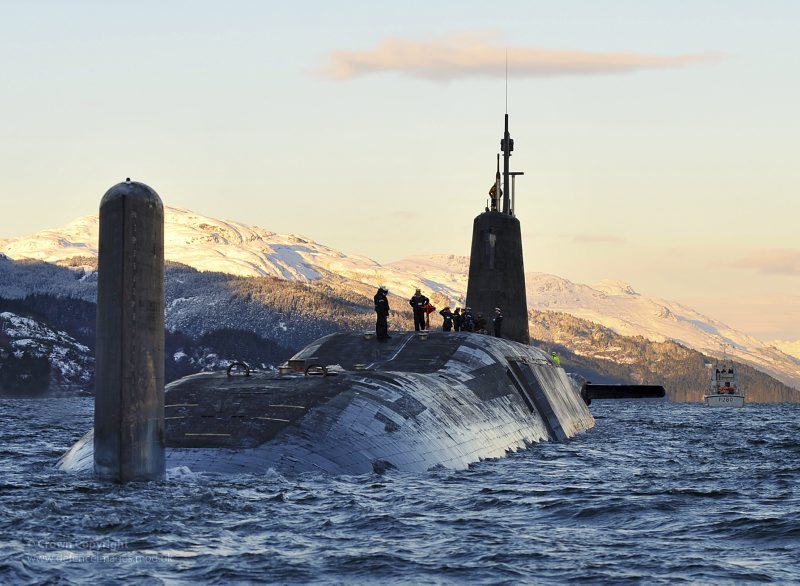
By: Megan White
“We come here with no peaceful intent, but ready for battle, determined to avenge our wrongs and set our country free. Let your masters come and attack us: we are ready to meet them beard-to-beard.”
This famous declaration, delivered on the eve of the Battle of Stirling Bridge in September 1297, launched the troops of Sir William Wallace beard-first into a decades-long struggle to throw off the yoke of English rule.
Nearly 717 years after that rallying cry, history appears to be repeating itself, though this time the battle is in the ballot box. On Sept. 18, Braveheart’s dream of an independent Scotland may once again come true as residents vote on whether or not to withdraw from the United Kingdom. Since early 2012, polls have crept from an emphatic “no” to a seven-point lead for “yes” as of Sept. 11. What was once a distant hypothetical has crystallized into a distinct possibility.
As election day approaches, the chorus of wonks decrying the dangers of a “yes” vote has multiplied in volume. Sources such as Forbes, Bloomberg, the Economist, Russia Today, and even Buzzfeed have extensively covered the upcoming vote, echoing Paul Krugman’s exasperated question: “Scots, What the Heck?” A newly independent Scotland would bring on an onslaught of economic, cultural, and geopolitical troubles.
On the economic front, independence could result in Scotland being forced to default on its hefty share of the United Kingdom’s £1.2 trillion debt. Avoiding a default would require massive tax hikes and spending cuts to the tune of £6 billion more than the current austerity program. Either way, high interest rates would limit investment at a time when Scotland needs it most. David Folkerts-Landau, the chief economist at Deutsche Bank, went so far as to warn that a “yes” vote could set the stage for a Scottish Great Depression.
A divorce from the United Kingdom raises a few cultural conundrums as well. What role will Queen Elizabeth play? What does it mean to be “British?” Intangibles aside, Scottish residents could suffer the loss of BBC programming: John Birt, a former BBC director general, suggested that Scots may have to pay extra to view shows that would only be available on “commercial terms,” including fan-favorite “Doctor Who.” But amidst the swirling speculation, perhaps the most serious and long-lasting ramifications of Scottish independence fall into the geopolitical arena.
Unlike Braveheart’s 13th-century War of Scottish Independence, the Sept. 18 campaign will be bloodless, but the stakes are much higher. Instead of medieval longbows and battle-axes, Scotland’s defense arsenal now houses the entirety of the United Kingdom’s nuclear program. Parked on the peaceful shores of Gare Loch, an inlet at the mouth of the River Clyde on the west coast of Scotland, are four Vanguard-class submarines. Each submarine is armed with 16 Trident II D-5 long-range ballistic missiles capable of delivering up to 12 thermonuclear warheads. A further 70 missiles are stored in a communal pool at a U.S. Strategic Weapons facility in Kings Bay, Georgia. These submarines, missiles, and warheads comprise the Trident Program, the United Kingdom’s sole nuclear deterrent.
First implemented under the Thatcher government in the early 1980s, the Trident Program is housed in Helensburgh, Scotland, a small town just south of the Faslane naval base. A “yes” vote in the upcoming referendum, however, could render the program homeless.
Alex Salmond, Scotland’s first minister and leader of the “yes” movement, has repeatedly rejected suggestions that the United Kingdom be permitted to keep its nuclear fleet afloat on the Clyde.
In fact, expelling the Trident Program from Scottish waters has long been a mainstay of the Scottish nationalist cause, an objective Salmond plans to achieve by 2020. Removing the nuclear submarines, however, would come at a substantial price for Scotland and the United Kingdom, both literally and figuratively. The Faslane naval base employs more than 6,000 people and is the biggest single-site employer in Scotland. Jackie Baillie, who represents the Helensburgh area in the Scottish parliament, estimates that banishing the nuclear program could cost some 11,000 jobs, many of which are for highly-skilled, well-paid workers. The removal itself comes with a £25 billion price tag. There is as of yet no concrete, publically known plan for what will become of the submarines and the nuclear warheads (and who will front the bill) should Scotland vote yes, and the potential options do not look promising. Experts estimate that building a new home for the program elsewhere in the United Kingdom would take at least 10 years and cost billions of dollars that the British government does not have.
Another option is unilateral disarmament. Scottish independence and the expulsion of the Trident Program could render the United Kingdom without a deterrent for the first time since 1952. Unlike Russia, which maintained its nuclear deterrent in the face of Soviet fragmentation, the United Kingdom has stored all its nuclear eggs in one basket. With the end of Trident, the United Kingdom would join the ranks of Ukraine, Kazakhstan, Belarus, and South Africa as one of the only countries to hand over its nuclear weapons. It would be the first nuclear-weapons state under the Non-Proliferation Treaty to disarm and the only member of the U.N. Security Council without a deterrent.
This comes at a time when Vladimir Putin’s sabre, or rather, nuclear warhead rattling has put NATO on the defensive. Scottish independence and subsequent British disarmament would be, according to former NATO secretary general George Robertson, “cataclysmic for Western security” and would leave France and the United States as the alliance’s only nuclear members.
However, despite the general sense of nuclear disorder that might initially result from the expulsion of Trident, disarmament may just bring about a greater sense of order. In possession of only 225 weapons to Russia’s and the United States’ nearly 8,000 each, the United Kingdom is by no means the world’s foremost nuclear power. Even so, complete disarmament by a member of the P-5 could set a positive precedent and lend legitimacy to the NPT’s disarmament clause. As NATO flexes its muscles against Putin, a newly disarmed United Kingdom could work to steer the conversation away from mutually assured destruction and nuclear deterrents.
With the polls more or less split down the middle and a vague-at-best post-election plan, Trident could very well live to see another day, or at least another bay. Scotland could very well vote “no,” and the north and the south could kiss and make up under their nuclear umbrella. But if the yea-sayers do prevail on Sept. 18, the results could be explosive.

